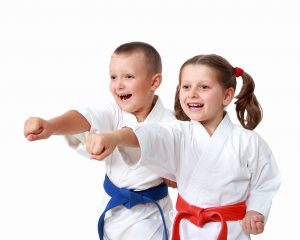
Martial Arts for Kids: Benefits Beyond Physical Fitness
Introduction
Martial arts are often associated with physical strength, agility, and self-defence skills. However, its benefits extend far beyond the realm of physical fitness, especially for children. Enrolling your child in martial arts classes can provide them with a range of valuable life skills and developmental advantages. In this blog post, we’ll explore the multifaceted benefits that martial arts offer to kids, from improved focus and discipline to enhanced self-confidence and social skills.
Enhanced Discipline and Focus
One of the most significant benefits of martial arts for kids is the cultivation of discipline and focus. Through structured training routines and adherence to martial arts principles, children learn the importance of concentration and self-control. Whether they’re practicing katas (forms) or drilling techniques, martial arts offer the ability to stay attentive and disciplined, skills that can translate into better academic performance and behaviour in other areas of life.
Building Self-Confidence
Confidence is crucial for a child’s overall development, and martial arts provides an excellent platform for its growth. As children progress through belt levels and overcome challenges in their training, they develop a sense of achievement and self-assurance. Moreover, mastering new techniques and facing opponents in sparring builds resilience and teaches them to believe in their abilities. This boost in self-confidence can positively change various aspects of a child’s life, from social interactions to academic endeavours.
Promoting Respect and Discipline
Respect for oneself and others is a core principle of martial arts philosophy. In a martial arts environment, children learn to respect their instructors, peers, and the traditions of the art form. Bowing to their instructors, following the dojang rules, and showing courtesy during training sessions are all ways in which children internalise the values of respect and discipline. These principles extend beyond the dojang, influencing their interactions with family members, teachers, and peers.
Developing Social Skills and Teamwork
Martial arts classes give a unique opportunity for children to interact with peers in a structured and supportive environment. Whether they’re practicing techniques with a partner or taking part in group exercises, children learn important social skills such as communication, cooperation, and teamwork. Working together toward common goals fosters a sense of camaraderie among classmates and helps children develop healthy relationships with their peers.
Stress Relief and Emotional Regulation
In today’s fast-paced world, children often face stress and pressure from various sources. Martial arts offer a constructive outlet for releasing pent-up energy and managing stress. The physical activity involved in training helps children channel their emotions in a positive manner, reducing anxiety and promoting emotional well-being. Additionally, the focus on breathing techniques and mindfulness in martial arts can help children develop better emotional regulation skills, enabling them to cope effectively with challenges both on and off the mat.
Conclusion
Martial arts for kids offer an integrated approach to child development, encompassing physical, mental, and emotional well-being. Beyond improving physical fitness and self-defence skills, martial arts instil valuable life lessons such as discipline, confidence, respect, and teamwork. By enrolling your child in martial arts classes, you provide them with a foundation for success in all aspects of life, empowering them to navigate challenges with resilience and grace.


